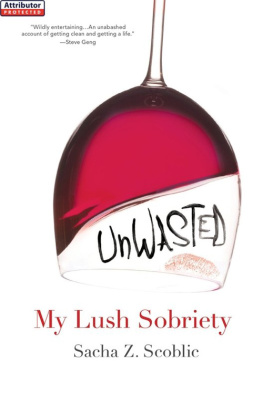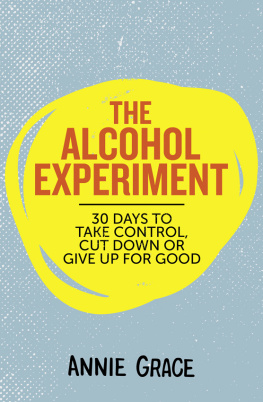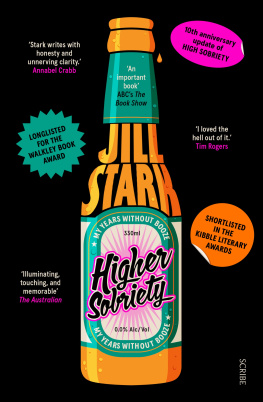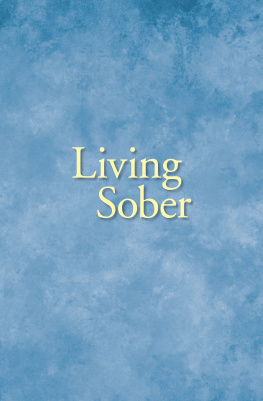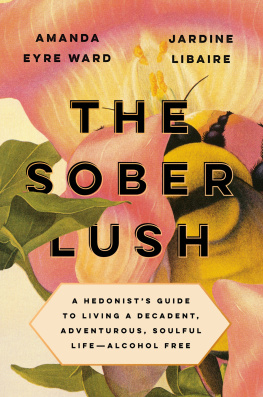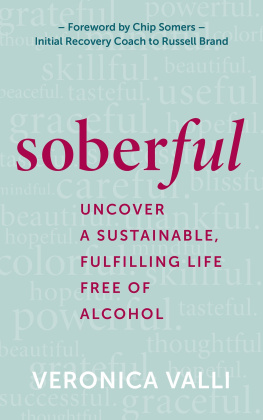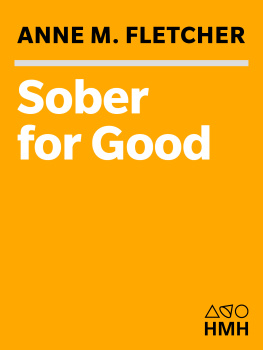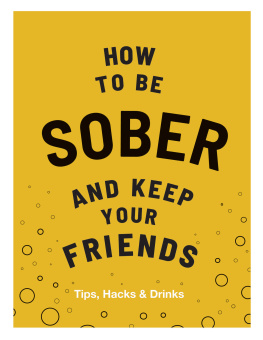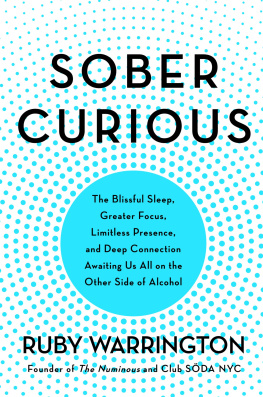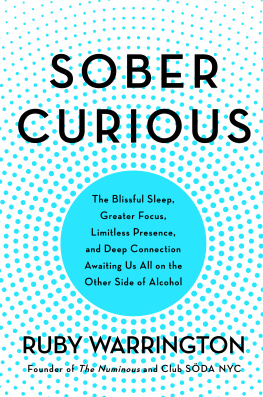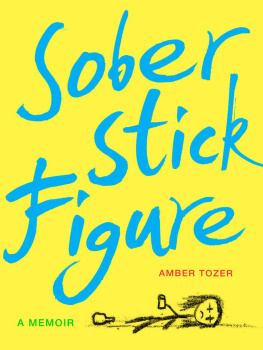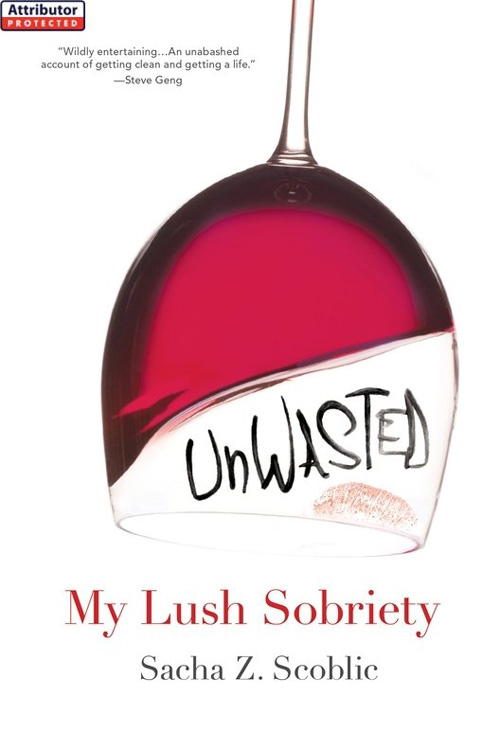Acknowledgments
R aise your sparkling ciders, and allow me to toast those who have been instrumental in helping me create Unwasted. My fantastic agent, Howard Yoon, patiently listened to my idea for a gimmicky nonalcoholic-drink recipe guide and then told me to go write a real book. Amy Pyle from Citadel got me and the book from the start and has been a truly insightful, funny, and encouraging editor throughout the process. Peter Catapano and Mark Lotto at The New York Times were early and ardent supporters of my addicted prose.
My deep appreciation to those great friends who are also talented writers and who read some or all of this book along the way, offering incredible advice, edits, and improvements: Jason Zengerle, Michelle Cottle, Lisa Gonzales, Kara Baskin, Steve Geng, and, especially, Amanda Fazzone and Ruth Franklin (dear, dark, kind friend). Thanks also to Smith Glover, Stephen Masiclat, Adam Zimmerman, and Zac Zimmerman for their creative talents. I would also be remiss if I did not mention the friendship and support of Ivy Nitzkin, Amy Ressing, Amy Sullivan, and Noam Scheiber (who tried to stop the sinking ship). Thanks also to Stephen Stein for the mindfulness amid the madness. And to Bill W., Dr. Bob, and the Wolf Pack (you know who you are).
I have had the great fortune to work at the Aspen Institute while writing this bookan organization devoted to pursuing the big ideas. Walter Isaacson, who knows a thing or two about the importance of words, guides the Institute with boundless indefatigability, vision, and inspiration. It is telling that I started this project from this perch. Id like in particular to raise my glass to my fearless captain, Jim Spiegelman, and my colleagues Jamie Miller, Jen Myers, Tarek Rizk, and the rest of the gang in our communications shop, all of whom supported my dream and carried the load when I left to write it. And a special thanks to Eric Motley and Dana Gioia, my in-house writing consiglieri.
My mother has endured years of insane behavior at the hands of her wild only child and should be sainted for time served. I hope to make her happy and proud as a gentler, more loving daughter nowadays. Her patience is exceeded only by her generosity of spirit. My sweet in-laws, Joseph and Barbara Scoblic, have never batted an eye at the odd and mouthy upstater at their sons side, and, for this, I am especially grateful and charmed. Stephen Scoblic, thank you for being a brother, friend, and fellow traveler. Thanks to Dad and Deb for unyielding support, easy conversation, and a warm household that always feels like home. Dad, you are a quiet hero. And Shiloh, who makes my heart stop and head spin whenever I hear a magic word I never thought would belong to me: sister.
As long as there are days and nights to laugh and play and have adventures, then you will find me on J. Peter Scoblics arm, grinning ear-to-ear. Peter makes all that is scary surmountable and all that is good transcendent. Without him, writing this book would quite simply have been impossible. With him, no moment is ever wasted.
Chapter 1
Rock Star, Meet Teetotaler
T he little tables in the restaurant shimmered under the moody lightingjust the kind of lighting that after a few drinks would take on a shadowy glow and make your table the only table, a tiny oasis. But it was autumn and here I was: three months stone-cold sober, out of the house for the first time in weeks, and meeting new peoplean intimidatingly attractive couple, Hanna and Evan, with bright smiles and even brighter careers. I wanted to hate them, to cede ground on the looks and success fronts but retain intellectual superiority. It was a lost cause; they were so damn funny right away that I couldnt help but be disarmed. Hanna was especially arch as she told wicked stories about life as a divorce attorney (You have to mourn it like a death, she deadpanned to an invisible client). I was smitten. Her eyes were mischievous when she leaned over to me and asked, Shall we order a bottle of wine? It was as though she was letting me in on a secret, a little bit of whimsy that she wanted to share with me, her table sister, while our wonky mates talked foreign policy.
No thanks, I dont drink, I said apologetically, certain I had just irrevocably denounced the possibility of a good time that night, rebuffed her sweet attempt at inclusion, and declared myself a Mormon all in one fell swoop. Which is perhaps why my next wordsrushing out of my mouth with a kind of desperate lunacywere: But dont worry, Im still fun! Like that was normal. Like that didnt sound anything at all like a pert promise-ring girl trying to assure her frustrated, panting boyfriend that we could do lots of things besides have sex. Because, really, how fun could I possibly be if I didnt drink?
I was acutely aware of my own feeling toward people who didnt drink, which was that they were obviously vanilla, uptight squares who secretly wanted me to treat my body like a temple, take Jesus Christ as my savior, and drink Kool-Aid with them at mixers in church basements. Or they were health nuts who got high by hiking Mount Kilimanjaro or taking six-hour heated power yoga sessions while communing with their inner gurus or doing other activities that smacked of effort. But the worst thing was that I feared even those folks were more interestingif exasperatingly earnestthan I was sober.
Drinking had given me an alter ego par excellence. I was the rock star at every party, nightclub, and living room I wafted into, happily singing or dancing like life was meant only for such pursuits. I was ready to see any evening through until dawn, to wear sequins and glitter if necessary, and to laugh until black eyeliner ran down my face. My favorite word was subversive, and my favorite humor was cruel. Every day was hard, but every night was Saturday night. Once, as a boyfriend implored me to take it easy, to call it a night, I looked to the friends waiting for me on the sidewalk ready to go to the next party and replied, But this is who I am. Im a fun girl.
And, for a long time, I was fun. Or at least I was having fun. In my twenties, along with my friends Jack and Tessa, I stepped into an alternate universe in Washington, D.C.a kind of Neverland, where Jack, Tessa, and I cocooned into one another, where every joke was an inside joke, where every night was ours for the taking.
In winter, I would slip from my apartment in D.C.s Adams Morgan neighborhood in nothing but flannel pajamas and dash through a cold night to Tessas house around the corner; she would be waiting with hot toddies and cigarettes, and we would build a fort on the floor and watch old, scary cult movies like Freaks, Carnival of Souls , or The Wicker Man until we passed out.
In the spring, wed take Ecstasy and go to gay clubs with Jack. Tessa would sit on the clubs huge speakers like a tiny punk-rock Buddha while Jack and I would dance and laugh. Eventually we would all huddle together and jump up and down in sync with the beat to our favorite nightclub song: Unspeakable Joy! Then we would wander home like ghosts, lowering all the blinds while Tessa meticulously turned all the clocks around or covered them with sweaters. And I would try to remember that I hadnt done anything wrong, that it was okay to stay up all night, that I was an adult. But somewhere I felt red flags flashing in the back of my mind, and I poured myself another drink.

